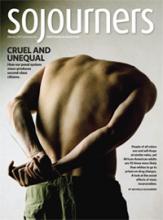I grew up in a Korean-language church here in the U.S. I understand the need to have, and the comfort of having, a faith community that not only speaks one’s language but also affirms one’s cultural identity.
But last year I joined several other Korean-American clergywomen to help persuade the General Assembly of my denomination, the Presbyterian Church (U.S.A.), to reject a proposal to create a new presbytery consisting of only Korean-language churches across the southeast U.S. (A presbytery usually consists of all churches in a particular local geographic area, regardless of language, although there are already four Korean-language presbyteries in the national church.)
Some believe that forming a Korean-language presbytery is a way of attaining more voting power for the Korean-American community, especially on hot, contentious issues. But I spoke against it for several reasons. Korean-American women have often struggled to be ordained in these language-specific presbyteries. It is also true that, in these presbyteries, leadership opportunities are pretty nonexistent for younger, second- and third-generation Korean-Americans, in part because they may be unable to speak Korean. And it may be that some Korean-language presbyteries do not function well in governance, polity, mission, or relationship. That last could be said about many of our geographic presbyteries as well -- including mine -- but the unique problem is that language creates a difficult barrier to adequate accountability and connection to the greater PCUSA body.
Read the Full Article
